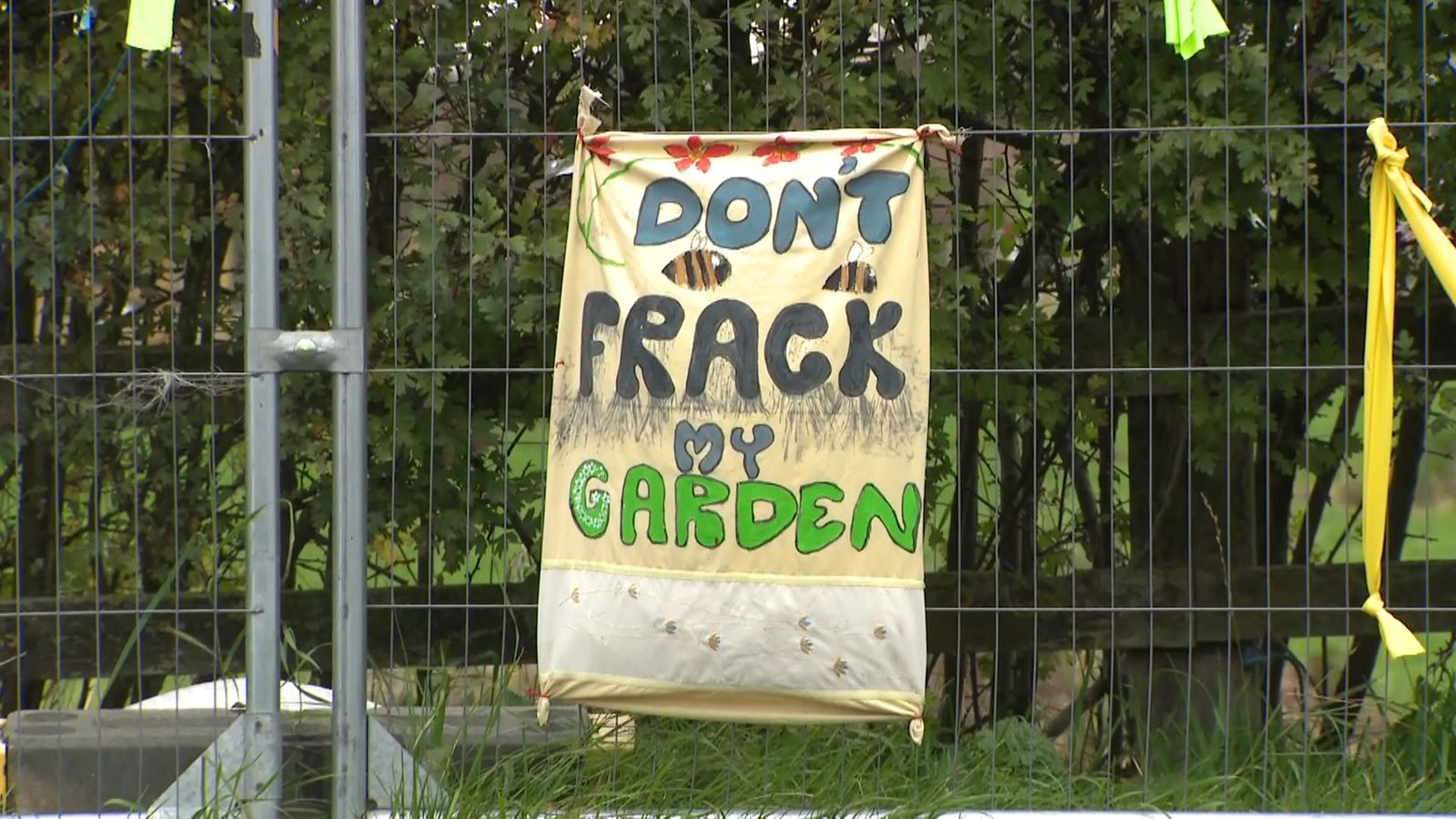Prime Minister Liz Truss has announced the ban on fracking will be lifted as part of plans to accelerate the UK’s domestic energy supply.
Ms Truss said lifting the moratorium, brought in by the Conservatives, will enable developers to seek planning permission for fracking and get gas flowing in as soon as six months.
Ms Truss said she was “setting a new ambition for our country”.
“Far from being dependent on the global energy market and the actions of malign actors, we will make sure that the UK is a net energy exporter by 2040,” she said.
Fracking is a technique for recovering gas and oil from shale rock by drilling into the earth.
It was banned in England in 2019 after new research raised fresh fears over the risk of earthquakes.
The Conservative’s manifesto said the party would not support fracking “unless the science shows categorically that it can be done safely”.
UK should ‘have another go’ at fracking, says leading geologist
Ineos challenges government to allow it to try fracking in England
Energy crisis: U-turn as Cuadrilla’s UK fracking wells given stay of execution by regulator
Georgia Whitaker, an oil and gas campaigner for Greenpeace UK, said there has been no change to the science since that pledge was made three years ago.
The activist said that before the ban was introduced, the industry had 10 years of experimenting with fracking but this “produced no energy for the UK”.
She said all it achieved was “two holes in a muddy field, traffic, noise, earthquakes and enormous controversy”.
She added: “Communities who have this nonsense inflicted on them in the name of an out-of-date ideology will be wondering who their elected representatives are really representing.”
Why is fracking controversial?
Fracking has been mired in controversy since it hit the headlines in 2011 for causing two minor earthquakes in Lancashire.
Environmentalists have warned that pursuing new sources of gas – a fossil fuel – is not compatible with efforts to tackle climate change, and the focus should be on developing cleaner sources of energy such as renewables.
The war in Ukraine – which has sent household energy bills soaring – has put pressure on the government to increase domestic energy supply.
But in March, Chancellor Kwasi Kwarteng argued that those calling for the return of fracking “misunderstand the situation we find ourselves in”.
The then-business secretary said that it would take a decade to extract sufficient volumes and would have a negative impact on communities while failing to lower energy bills.
He wrote in the Mail on Sunday: “With the best will in the world, private companies are not going to sell the shale gas they produce to UK consumers below the market price. They are not charities, after all.”
Please use Chrome browser for a more accessible video player
Ed Miliband, the former Labour leader and shadow climate minister, said lifting the moratorium was “another case of ideology trumping common sense”.
He told Sky News that the price of fracked gas extracted in the UK would still cost the same as imported gas because it is sold on the international market and “that is nine times the current price of renewables”.
“There’s only one way out of being in the grip of the geopolitics of Putin and others and that is a clean energy sprint,” he said.
“I’m afraid the government seems to be setting its face against that.”
As well as lifting the ban on fracking, Ms Truss pledged to launch a new licensing round for oil licenses while speeding up deployment for clean and renewable technologies.
She said securing energy supply is vital to growth and prosperity “yet it has been ignored for too long”.
She also revealed that she would shield households from rising costs by freezing energy bills at £2,500 for the next two years.






















